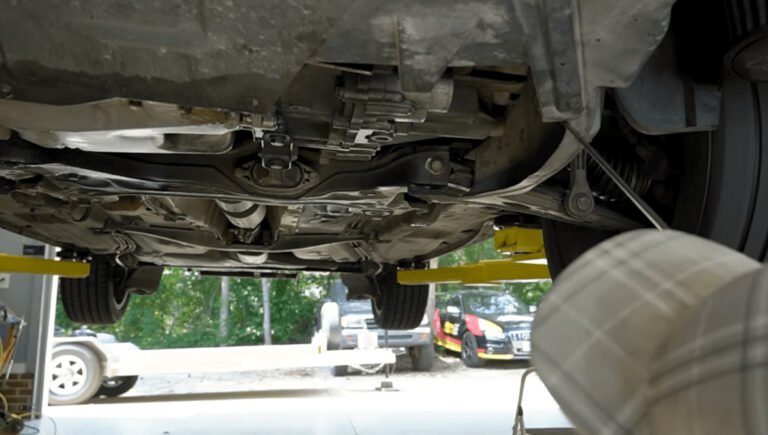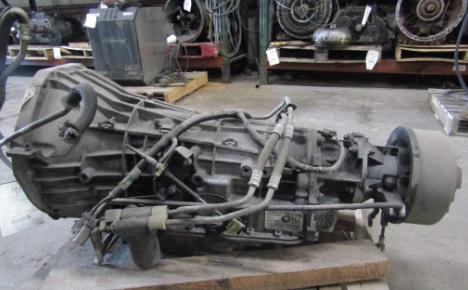Can Humidity Cause Check Engine Light To Come On? [Answered]
The intriguing question is, Can Humidity Cause Check Engine Light To Come On? This is a concern that perplexes many drivers, especially in areas with high moisture levels. Understanding the relationship between humidity and your vehicle’s performance is essential. It’s not just about the direct impact of humidity; it’s about the cascading effects it can have on your car’s systems.
Key Takeaways
- High humidity can indirectly lead to issues causing the check engine light to illuminate.
- Moisture can affect various car components, including electrical systems and air filters.
- Regular maintenance is vital to mitigate humidity-related problems.
Can Humidity Cause Check Engine Light To Come On?
Yes, humidity can indirectly cause the check engine light to come on. High levels of humidity can affect various car components like sensors and electrical systems. For instance, moisture can interfere with the functioning of oxygen sensors and Mass Air Flow (MAF) sensors, leading to incorrect readings and potentially triggering the check engine light.

Additionally, humidity can cause condensation and corrosion in the vehicle’s electrical system, which might also activate the check engine light. Regular maintenance is key to mitigate these humidity-related issues.
Impact of Humidity on Engine Performance
The Role of Humidity in Engine Functioning
Humidity plays a subtle yet significant role in engine performance. High levels of moisture in the air can affect the air-to-fuel ratio in the engine. This imbalance can lead to inefficient combustion, which might trigger the check engine light. It’s a complex interaction, where the moisture-laden air impacts the oxygen sensors and other components.
How High Humidity Affects Combustion
Combustion efficiency is key to a smoothly running engine. When the air is too humid, the increased moisture content can lead to a leaner mixture of air and fuel. This imbalance can cause the engine to run inefficiently, potentially triggering the check engine light as the system tries to correct or indicate the problem.
Humidity’s Effect on Vehicle Sensors
The Vulnerability of Oxygen Sensors to Moisture
Oxygen sensors are crucial in regulating the engine’s air-fuel mixture. When exposed to high humidity, these sensors can malfunction, sending incorrect readings to the engine control unit (ECU). This misinformation can result in the check engine light coming on, indicating a sensor issue rather than a direct humidity problem.
Impact on Mass Air Flow (MAF) Sensors
Similar to oxygen sensors, Mass Air Flow sensors are sensitive to changes in air density and moisture. In humid conditions, these sensors can get coated with moisture and debris, leading to faulty readings. This miscommunication can prompt the ECU to illuminate the check engine light, signaling a need for sensor cleaning or replacement.
Humidity and Electrical System Disruptions

Moisture-Induced Electrical Issues
The electrical system of a car is intricate and sensitive. High humidity can lead to condensation, which in turn can cause short circuits or corrosion in electrical connections. These disruptions can lead to various issues, including the activation of the check engine light.
The Risk of Corrosion in Electrical Components
Constant exposure to humidity can cause corrosion in electrical components, including wiring and connectors. This corrosion can interrupt electrical signals, leading to faulty readings and triggering the check engine light. It’s a slow process, but it can have significant implications for vehicle health.
Preventive Measures and Maintenance
Importance of Regular Vehicle Maintenance
Regular maintenance is key to preventing humidity-related issues in your vehicle. This includes checking and replacing air filters, which can become clogged in humid conditions, and ensuring that all electrical connections are clean and dry.
Best Practices for Humidity Management
To mitigate the effects of humidity, it’s important to keep your vehicle in a dry, well-ventilated area. Using dehumidifiers in garages and ensuring good circulation can help reduce moisture accumulation in the vehicle’s components.
Diagnosing and Addressing Humidity-Related Issues

Steps in Diagnosing Humidity-Induced Problems
When faced with a check engine light potentially caused by humidity, the first step is a thorough diagnostic process. Utilizing an OBD-II scanner can help pinpoint the issue.
Mechanics often look for codes related to the oxygen sensor, MAF sensor, or electrical system faults. It’s crucial to differentiate between direct humidity effects and other underlying issues that might be exacerbated by moisture.
Solutions and Repairs for Humidity Damage
Once the problem is identified, addressing humidity damage involves specific repairs or replacements. This might include replacing corroded electrical components or cleaning moisture-affected sensors.
In some cases, simply allowing the vehicle to dry out in a well-ventilated area can resolve minor issues. However, persistent problems may require professional intervention to ensure all affected components are functioning correctly.
The Science Behind Humidity and Engine Sensors
Understanding the Physics of Moisture and Sensors
To grasp why humidity affects engine sensors, it’s important to understand the science behind it. Sensors like oxygen and MAF sensors are designed to measure precise variables like oxygen content and airflow.
Humidity introduces moisture into the air, which can alter these readings. The moisture can form condensation on sensor surfaces, leading to inaccurate measurements.
The Chemical Impact of Humidity on Vehicle Systems
Beyond the physical presence of moisture, humidity can also have a chemical impact on vehicle systems. For example, high humidity can accelerate the oxidation process, leading to rust and corrosion in metal parts.
This chemical change can affect sensor connections and wiring, leading to malfunctions that might trigger the check engine light.
Long-Term Effects of High Humidity on Vehicles

Impact on Vehicle Longevity
Continuous exposure to high humidity can have long-term effects on a vehicle’s health and longevity. Prolonged moisture exposure can lead to chronic issues like rusting, especially in older vehicles.
This rust can weaken structural integrity and cause long-term damage to critical components, potentially leading to costly repairs or even premature vehicle failure.
Preventive Strategies to Protect Your Car
To protect your vehicle from the long-term effects of humidity, consider implementing strategies like regular undercarriage washes to remove moisture and debris.
Using protective coatings on metal parts can also help reduce the risk of rust and corrosion. Parking in covered, dry areas and using moisture absorbers inside the vehicle can further mitigate humidity damage.
The Role of Climate and Environment
Geographic Variations in Humidity-Related Issues
The impact of humidity on vehicles can vary significantly based on geographic location. In coastal or tropical regions, where humidity levels are consistently high, vehicles are more susceptible to humidity-related issues.
Understanding the specific challenges of your local climate can help in developing a targeted maintenance routine to counteract these effects.
Adapting Vehicle Maintenance to Different Climates
For those living in high-humidity areas, it’s crucial to adapt vehicle maintenance routines accordingly. This includes more frequent checks of air filters, electrical components, and sensors.
Consulting with local mechanics who are familiar with the challenges of the local climate can provide valuable insights into preventative measures and maintenance practices.
How Summer Heat And Humidity Affects Your Car?
Summer’s heat and humidity can significantly impact your vehicle, leading to various challenges. High temperatures increase the engine’s workload, escalating wear and tear.
This extra strain can lead to overheating and heighten the risk of other heat-related issues. The best defense against these problems is routine car maintenance, ensuring efficient operation even in hot weather.

Key components to monitor include fluid levels (coolant, oil, transmission fluid, brake fluid, power-steering fluid, and windshield wiper fluid), belts and hoses, the battery, and tire pressure.
Hot weather can drain your battery faster and increase your tire pressure. Regular checks and maintenance can prevent blowouts and other heat-induced issues.
Can A Check Engine Light Come On Due To Weather?
Yes, weather conditions, including both cold and hot temperatures, can trigger the check engine light. In cold weather, the engine oil thickens, causing improper lubrication and potential engine misfires, which can activate the check engine light.

Similarly, in hot weather, the engine might overheat, or fuel may evaporate more quickly, leading to insufficient fuel supply and engine problems that trigger the check engine light. Regular maintenance, such as oil changes and cooling system checks, is vital to prevent these weather-related issues.
What Causes A False Check Engine Light?
A false check engine light can be triggered by various factors, not always indicating a serious engine problem.
Some common causes include a faulty oxygen sensor, which monitors the air-fuel ratio; a malfunctioning catalytic converter, responsible for reducing engine emissions; a defective mass air flow sensor, measuring the amount of air entering the engine; issues with spark plugs or ignition coils; a dirty air filter restricting airflow; a leaking fuel injector; and a faulty throttle position sensor, monitoring the throttle’s position.
Regular vehicle diagnostics and maintenance can help identify and fix these issues before they lead to a false check engine light.
Conclusion
In conclusion, while humidity itself may not directly cause the check engine light to come on, it can indirectly lead to a range of issues that trigger this warning. From affecting sensors to causing electrical disruptions, the impact of high humidity on a vehicle can be significant.
Regular maintenance and preventive measures are crucial to safeguard your vehicle against these humidity-induced problems. Understanding and addressing these factors can help ensure your car runs smoothly, regardless of the weather conditions.
Top FAQ’s
Can humidity affect my car’s braking system?
While humidity itself doesn’t directly affect the braking system, it can lead to rust and corrosion of brake components over time, especially in parts like brake rotors and calipers, potentially affecting braking performance.
Cars with advanced moisture protection and newer models with better seals and protective coatings are generally more resistant to humidity-related issues. However, regular maintenance remains crucial regardless of the vehicle type.
What are the signs that humidity is affecting my car?
Signs include frequent triggering of the check engine light, issues with electrical systems (like flickering lights), and in some cases, a noticeable decrease in engine performance or efficiency.
Can driving in humid conditions cause immediate damage to the vehicle?
Immediate damage from driving in humid conditions is rare, but consistent exposure without proper maintenance can lead to gradual damage over time, especially to sensors and electrical components.
How does humidity affect fuel efficiency?
Humidity can impact fuel efficiency by affecting the air-to-fuel ratio in the engine. High humidity can result in a leaner mixture, which might cause the engine to work harder and decrease fuel efficiency.

Welcome to the exhilarating world of Matt Rex, a professional car racer turned renowned vehicle enthusiast. Immerse yourself in his captivating blog as he shares heart-pounding adventures, expert reviews, and valuable insights on cars, trucks, jets, and more. Fuel your passion for speed and discover the beauty of vehicles through Matt’s engaging stories and meticulous expertise. Join the ever-growing community of enthusiasts who find inspiration and expert advice in Matt Rex’s blog—a digital hub where the thrill of speed meets the pursuit of knowledge.







